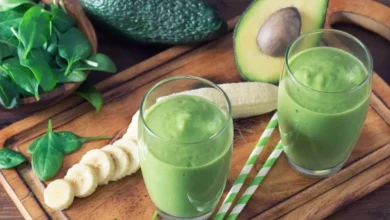Nourishing Your Body: A Dive into the Best Foods to Prevent Weight Gain

In a world inundated with fad diets and quick fixes, maintaining a healthy weight remains a universal goal. The key to effective weight management lies not in deprivation but in making informed and sustainable food choices. In this exploration, we delve into the realm of nutrition to uncover the best foods that not only nourish the body but also play a crucial role in preventing weight gain.
Leafy Greens: The Powerhouse of Nutrients
Leafy greens such as spinach, kale, and Swiss chard are nutritional powerhouses. Packed with vitamins, minerals, and fiber, they contribute to a feeling of fullness while keeping calorie intake in check. The high water content in these greens also aids in hydration, supporting overall health and weight management.
Lean Proteins: Building Blocks for Satiety
Incorporating lean proteins like chicken, turkey, tofu, and legumes into your diet can be instrumental in preventing weight gain. Proteins are essential for muscle repair and growth, and they promote a sense of fullness, reducing the likelihood of overeating. Moreover, the thermic effect of protein means that the body expends more energy digesting protein-rich foods, contributing to weight maintenance.
Whole Grains: Sustaining Energy Levels
Opting for whole grains over refined grains provides a steady release of energy, preventing spikes and crashes in blood sugar levels. Foods like quinoa, brown rice, and oats are not only rich in fiber but also offer a range of essential nutrients. The sustained energy from whole grains helps stave off cravings and promotes a balanced approach to eating.
Healthy Fats: Supporting Metabolism
Contrary to the misconception that all fats contribute to weight gain, incorporating healthy fats into your diet can be beneficial. Avocados, nuts, seeds, and olive oil contain monounsaturated fats that support metabolism and provide a feeling of satiety. These fats also play a role in nutrient absorption, enhancing the bioavailability of fat-soluble vitamins.
Fruits: Nature’s Sweet Treats
While some may shy away from fruits due to their natural sugars, they are a vital component of a balanced diet. Fruits like berries, apples, and citrus fruits not only satisfy sweet cravings but also supply essential vitamins, antioxidants, and fiber. The fiber content aids digestion and helps regulate blood sugar levels, contributing to weight control.
Greek Yogurt: A Protein-Rich Snack
Greek yogurt stands out as a versatile and protein-rich snack option. With probiotics that support gut health and a higher protein content than regular yogurt, it can be a satisfying choice that curbs hunger between meals. Opt for plain, unsweetened varieties to avoid added sugars.
Vegetables: A Rainbow of Nutrients
Colorful vegetables offer a diverse array of nutrients, each contributing to overall health. Bell peppers, carrots, broccoli, and sweet potatoes provide vitamins, minerals, and antioxidants. Including a variety of vegetables ensures a well-rounded nutritional profile, making your meals both visually appealing and nutritionally dense.
Water: The Unsung Hero
While not a food per se, water plays a pivotal role in weight management. Often underestimated, staying adequately hydrated can prevent overeating, as thirst can be misinterpreted as hunger. Drinking water before meals can promote a sense of fullness, aiding portion control and overall calorie intake.
Salmon: Omega-3 Rich Goodness
Salmon, and other fatty fish like mackerel and sardines, are rich sources of omega-3 fatty acids. These essential fats contribute to heart health and have been linked to weight regulation. Additionally, the protein content in fish can contribute to feelings of fullness and satisfaction after a meal.
Chia Seeds: Tiny but Mighty
Chia seeds are a nutrient-dense addition to your diet, offering a good balance of fiber, protein, and healthy fats. When soaked, chia seeds absorb liquid and take on a gel-like consistency, promoting a feeling of fullness. Including chia seeds in smoothies, yogurt, or as a topping for dishes can add nutritional value without contributing to excess calorie intake.
Conclusion
In the pursuit of weight management, adopting a holistic and sustainable approach to nutrition is paramount. The best foods to prevent weight gain are those that not only contribute to a healthy weight but also support overall well-being. By embracing a diet rich in leafy greens, lean proteins, whole grains, healthy fats, and a colorful array of fruits and vegetables, you empower yourself to make choices that nourish both body and mind. Remember, it’s not just about what you eat but how you cultivate a mindful and balanced relationship with food that sets the foundation for a healthier and more vibrant life.



